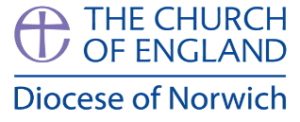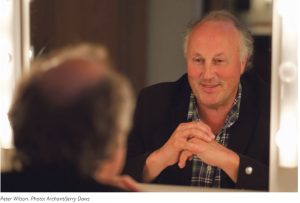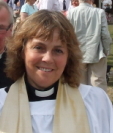 Every four years our Norwich Diocese has a ‘Big Get Together’. This year from 11th – 14th September 2017 we (I think about 200) met at University of Hertfordshire for 3 days and 3 nights.
Every four years our Norwich Diocese has a ‘Big Get Together’. This year from 11th – 14th September 2017 we (I think about 200) met at University of Hertfordshire for 3 days and 3 nights.
There were some amazing speakers, both in Key Note Addresses and in the workshops. The days were spent in a mixture of listening, worship and meeting up with friends, as well as some excellent meals, sports sessions and evenings together.
Worship is always a major part in our days together and we shared in Eucharist, Morning Prayer, Evening Prayer and Compline, so lots of time to allow for the spirit to get to work!
Personally I came away refreshed and reinvigorated, with a clearer sense of direction in my next steps in ministry. Change is always a challenge, especially when you can’t see the way ahead.
Highlights for myself at the conference were the Key Note speakers, Peter Wilson, Bridget Kendall, MBE and Dr Iain McGilchrist. The following short pieces are my reflections from notes on their lectures. All three had a faith involvement but this was not the main reason for their critiques and all the more stimulating to consider from a wider angle than clergy can sometimes perceive.
Peter Wilson
 Peter has been the Chief Executive of Theatre Royal in Norwich for many years and has transformed the theatre into a community based theatre with a huge range of productions which are enjoyed by so many people in Norwich and Norfolk.
Peter has been the Chief Executive of Theatre Royal in Norwich for many years and has transformed the theatre into a community based theatre with a huge range of productions which are enjoyed by so many people in Norwich and Norfolk.
His background is an actor and director among other things, with a constant supply of different projects on the go at the same time. He was famously involved in The Woman in Black , now one of the longest running theatre productions in London. He was also instrumental in developing J.B. Priestley’s, An Inspector Calls, and the touring carried on many years after the original South Bank performances.
He very passionately described the way the family, in An Inspector Calls is on stage in the isolated room. Depicting life after the First World War, but written in 1945, after the Second World War, the play looks at how we can find a more compassionate society and a hope for the future.
Peter had an aim for the theatre to be a community space; somewhere people can meet, can enjoy, can communicate. Theatre Royal is now certainly that and the ever booming productions show how well it is received. One example of the care for community is the Get Together Group, people can meet as friends and enjoy going out to a performance which they may not have done alone.
There were many interesting questions; it made me reflect on the similarity of attending a performance and attending a church service, expectations, delivery, performance maybe, a message, indeed!
Bridget Kendall MBE
 Bridget is now Master of Peterhouse College in Cambridge. Previously she was BBC correspondent in Moscow at the break-up of the Soviet Union, BBC’s Washington correspondent, and correspondent in Iraq at the time of the invasion, amongst other missions.
Bridget is now Master of Peterhouse College in Cambridge. Previously she was BBC correspondent in Moscow at the break-up of the Soviet Union, BBC’s Washington correspondent, and correspondent in Iraq at the time of the invasion, amongst other missions.
She talked about the change since the 1980’s when devoted listeners and viewers would make a regular commitment to newspapers and 6 or 10 O Clock news. Over time this has changed to a plethora of news feeds, social media where most people now dip into for updates to news. But they are usually only listening to the things they want to hear, they follow people and articles of similar minds, they are closed to different views. She said that young people have a Pick and Mix approach to what they need to hear.
It is a change from, ‘What we ought to know, to what we want to know’, and politicians play on this, feeding people with news and comments that they will want to hear, rather than situations as they really are.
Bridget said it is hard for authorities, especially the Kremlin to have control over the news broadcast to the people as they receive news from all over the world and from all over their own country.
Dr Iain McGilchrist
 Iain Mc Gilchrist is a former Fellow of All Saints College, Oxford, Fellow of the Royal Society of Psychiatrists, a Fellow of the Royal Society of Arts and former consultant Psychiatrist and Clinical Director at Bethlem Royal Maudsley Hospital, London.
Iain Mc Gilchrist is a former Fellow of All Saints College, Oxford, Fellow of the Royal Society of Psychiatrists, a Fellow of the Royal Society of Arts and former consultant Psychiatrist and Clinical Director at Bethlem Royal Maudsley Hospital, London.
He has recently published a book called, The Master and his Emissary: The Divided Brain and the Making of the Western World.
Over a series of two lectures Ian explained the reasons behind the theory that the two hemispheres of the brain are not simply; emotion on the right and reason on the left, but a complex interdependence acting as one but with two very separate parts. The right hemisphere acting as the master, and the left as the emissary. Neither hemisphere can act alone, they need each other for making connections.
He described it as like a bird pecking at seeds of grain on a gravel path.
The birds need the left side of the brain to let it know which is the grain. The right hemisphere is aware of the surroundings, the need to keep watch. So together the messages are passed through the Corpus callosum as one.
The left hemisphere can be described very simply as dealing with order, mechanics, linear relationships. It has simple version of the world, yet is very confident. The right hemisphere has a wider view, deals with ambiguity, truth, beauty, morality, music, art, relationships, love, trust.
The RSA Animate lecture is brilliant at explanation.
A fundamental problem arising in today’s world is the rise of the left side way of working, the analytical reasoning , mechanistic approaches in so much of our lives, a fundamentalism and authoritarian delivery which makes sense to those where the right side of the brain is not engaged so much.
An example Ian used was of learning a musical instrument; we have to practice each piece, and then we can use that process to support the performance, which is more than the sum of the practises.
An amazing theory and supporting research in finding truths and seeking an understanding of not only the function of the brain but how that influences our world and civilisations.
Much to think about and delighted to leave conference having spent time listening to others with amazing stories, and to finding new direction and onward travel.
Rev’d Sue Martin
Diocese of Norwich

